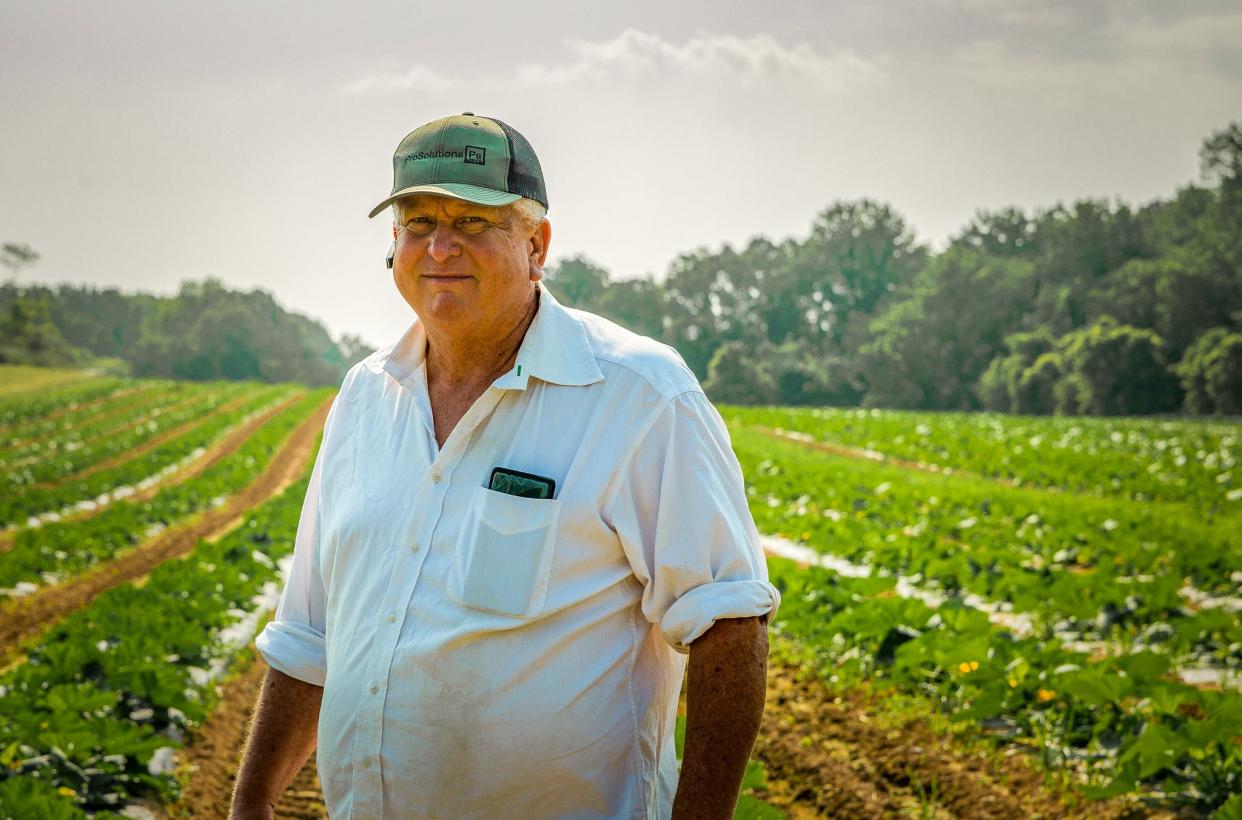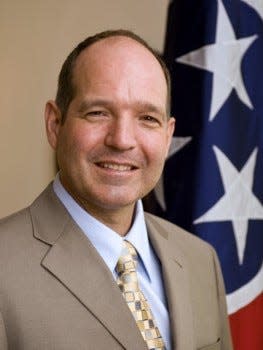How missed emails caused Tennessee to lose $7 million to buy local food
Troy Smiley's family has farmed in Ridgetop, just north of Nashville, since 1805. It has gotten harder to be a small farmer in recent decades, said Smiley, 56. The independent warehouses, which once bought the vegetables he couldn't sell at the farmers market, have largely vanished as grocery stores have consolidated.
Last year, however, was a good one for Smiley's family farm. The federal Local Food Purchase Assistance program brought more than $8 million to Tennessee so that food banks could buy local produce.

Every Friday, Smiley would call Second Harvest Food Bank of Middle Tennessee. The Nasvhille food bank told Smiley what they needed, and the farmer would deliver the fresh food on Tuesday.
"It was the greatest thing ever invented," Smiley said. "They paid the market price. You actually felt like you were productive."
The LFPA was funded with $400 million from the 2021 American Rescue Plan, the federal COVID-19 pandemic assistance act. Smiley always knew the program was temporary.
But in September 2022, a follow-up program, LFPA Plus, with an additional $460 in funding was announced.
Tennessee could have received an additional $7.2 million from the $464 million LFPA Plus program. The Tennessee Department of Agriculture, however, did not see the emails from the U.S. Department of Agriculture about the new program until after the deadline passed.
In response, this week the General Assembly's finance committees earmarked $7.2 million of the Tennessee Department of Agriculture's annual $87 million budget for local food purchases to make up for the lost federal funds. The full House and Senate are expected to finalize the budget by Thursday.
"This move ensures those relying on the program receive the funds needed to serve Tennesseans," Senate Republican Caucus spokesperson Molly Gormley said.
The state is not providing the department with additional money, but rather requiring the agency to use $7.2 million of its requested budget to continue the local food purchase program. The news of the agency's failure to apply for LFPA Plus funds was first reported by the Chattanooga news site Food as a Verb.
"We are engaged with lawmakers for this earmark, and because of that, it is too early to speculate if it may affect other programs," Department of Agriculture spokesperson Samantha Jean said.
A $7 million mistake
In a March meeting of the Senate Finance Committee, Chair Bo Watson, R-Hixson, grilled state agriculture officials over whether there was a “logical, rational decision for not applying for those federal grants.”
Tennessee Republicans in recent months have increasingly sought to buck federal funding if the state can make up the funds, but Watson has emerged as a more cautious voice amid decreasing state revenues.
Agriculture Commissioner Charlie Hatcher told lawmakers he was not aware the department had missed the deadline until nearly a year after the program was announced. The department asked the USDA to consider Tennessee's application to the LFPA Plus after the May 2023 deadline for the program, but the federal agency denied that request.

“Nobody was more upset than I was about it, to leave money on the table,” Hatcher said. “Looking into the matter, it looked like USDA had sent some generic emails to a few of the people in our grant section, but never was there a direct addressed email to me or anybody else to ask if we wanted to go through with a second round. Regardless, we missed it, and I’m going to own that part of it.”
The USDA said it emailed the state department six notifications and reminders about the LFPA Plus program to "all government points of contact indicated on their initial LFPA proposals." The agency also discussed the new program during its monthly "office hours," which were open to any agency that received a LFPA grant.
Of the 82 states, territories and tribes that received LFPA funds, 73 of them submitted and were granted money from the follow-up LFPA Plus program. An additional 77 LFPA Plus applications were submitted and approved.
"Besides Tennessee, no other states reported not receiving notification of the new LFPA Plus funding," a USDA spokesperson said.
State money replaces lost federal dollars
In a tense exchange at the March committee meeting, Watson pointed out that the department’s 2025 budget request did not include a potential funding plan to make up for the lost grant dollars. Watson appeared frustrated the department expected the legislature to come up with a plan for the funding.
“I guess I’m a little bit surprised there’s an oversight of $7.2-$8.2 million and no attempt by the department to fund that gap,” Watson said.
Department officials told the committee they only learned they had failed to opt in for the potential grant money after they submitted their 2025 budget request.
Hatcher told Watson that agency's leadership had met with local food banks since the grant snafu, and officials assured lawmakers the department’s grant procedures have been revamped under a centralized grant process.
“I appreciate the process improvement. It doesn’t necessarily fix the problem that we have before us,” Watson said.
The agriculture spokesperson also said the agency carried out an internal review to avoid missing similar opportunities in the future.
The department partnered with five regional food banks in Tennessee to distribute the initial $8.2 million in federal funds. More than half the money has been spent. The food banks have until Aug. 15 to spend the rest of the original LPFA grant. At that point, any unused funds would be returned to the USDA.
Todd A. Price is a regional reporter in the South for the USA TODAY Network. He can be reached taprice@gannett.com.
This article originally appeared on Nashville Tennessean: TN Department of Agriculture failed to request $7M for food banks
